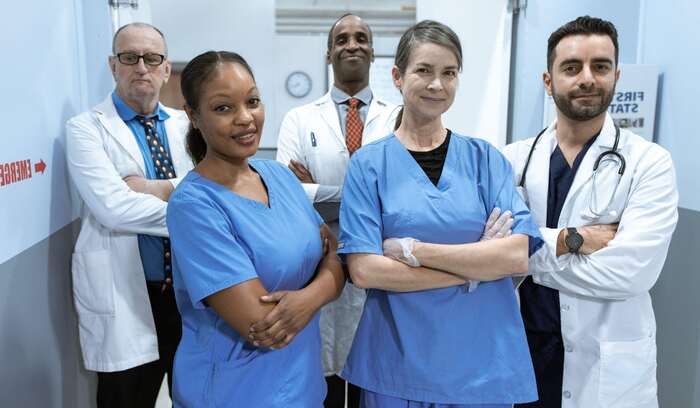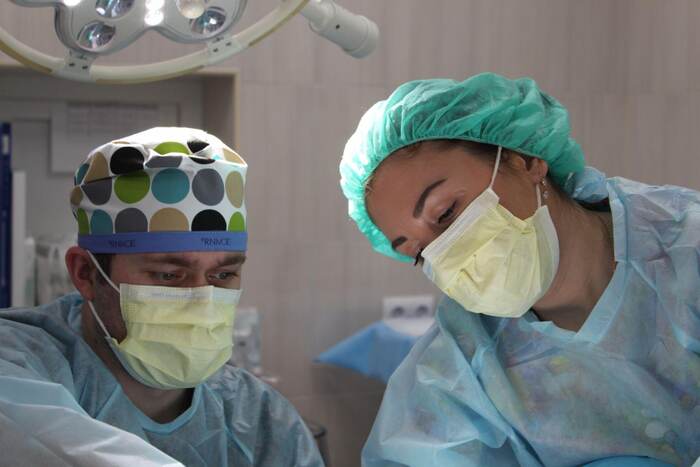
The curriculum of a Master of Science in Nursing (MSN) degree program normally consists of a mix of classroom instruction and clinical practice, however this structure is subject to change based on the particular program chosen and the concentration of the degree.
The Many Areas Of Study In An MSN
Courses in advanced health assessment, nursing research, healthcare systems and policy, and specialized courses related to a specific area of practice, such as gerontological nursing or family nurse practitioner education, are typical components of the curriculum for a Master of Science in Nursing (MSN) degree program.
In addition, students pursuing a Master of Science in Nursing are often expected to do a clinical practicum, which provides them with the opportunity to obtain practical experience working in a hospital environment. The Master of Science in Nursing (MSN) program curriculum is subject to change based on the school that is providing the MSN education.
For the purpose of preparing nurses for leadership positions in the healthcare business, a Master of Science in Nursing (MSN) program with a concentration on healthcare systems is established. The specialized information and abilities necessary to administer healthcare systems and enhance patient outcomes are often included in these types of programs.
Common themes include healthcare administration, healthcare policy, and healthcare finance.
Those individuals who are currently working in the healthcare industry and are looking to advance their careers as well as those who are seeking to change careers and enter the healthcare field in a leadership role are both examples of people who may want to consider enrolling in an MSN program with a focus on healthcare systems. The following are some examples of professions who would be interested in participating in this kind of program:
- Registered nurses (RNs) who have been employed in the industry for a number of years and are interested in starting their own practice or taking on leadership responsibilities in existing practices.
- Healthcare administrators and managers who are interested in improving their understanding of nursing practice and expanding their knowledge of the field as a whole in order to enhance the entire healthcare system.
- People who wish to be able to advocate for patients and the nursing profession, as well as those who want to be active in the policy and politics surrounding healthcare.
This kind of degree may also be perfect for nurses who are interested in specializing in particular areas of healthcare, such as public health (https://en.wikipedia.org/wiki/Public_health), healthcare informatics, healthcare quality and safety, and a variety of other fields as well.
A clinical component is often included as part of a Master of Science in Nursing (MSN) degree, which gives students the opportunity to obtain practical experience working in a hospital environment. Because it gives students the chance to apply the ideas and concepts they have studied in the classroom to real-world settings, the clinical component of the MSN curriculum is a crucial component.
Depending on the MSN program and the concentration of the degree, the clinical program may take a variety of different forms; nevertheless, it will almost always include supervised clinical practice and/or research.

Supervised Clinical Practice
Students will often be placed in a healthcare facility, such as a hospital or clinic, where they will work under the supervision of a licensed healthcare practitioner. This kind of clinical experience is required for students to graduate from the program. They are able to get experience through delivering treatment to patients, as well as watch and learn from more experienced practitioners thanks to this opportunity.
Clinical Research
Some Master of Science in Nursing (MSN) programs may also contain a research component, which gives students the opportunity to take part in active research initiatives in their area of speciality. This might entail them carrying out their own research investigations or supporting other researchers with the topics they are working on.
In the majority of programs, you will also be required to have a certain number of hours of clinical experience. The amount of required hours often varies from program to program, as can be viewed at https://online.xavier.edu/online-programs/msn-masters-nursing/, but it is generally close to 600 hours.
Students have the chance to develop and hone their abilities throughout their time in the clinical setting, and they also get essential learning experience that may assist them in becoming better prepared for advanced practice employment in their chosen area.
It is essential to be aware that MSN programs are offered in a variety of specializations, and that each concentration area has its very own particular clinical program requirements. Because of this, it is best to check the program’s curriculum in order to gain an understanding of the clinical requirements.
In conclusion, a Master of Science in Nursing degree that has an emphasis on healthcare systems is an excellent option for registered nurses and other healthcare professionals who are interested in advancing their careers and taking on leadership responsibilities within the healthcare sector.
Leave a Reply